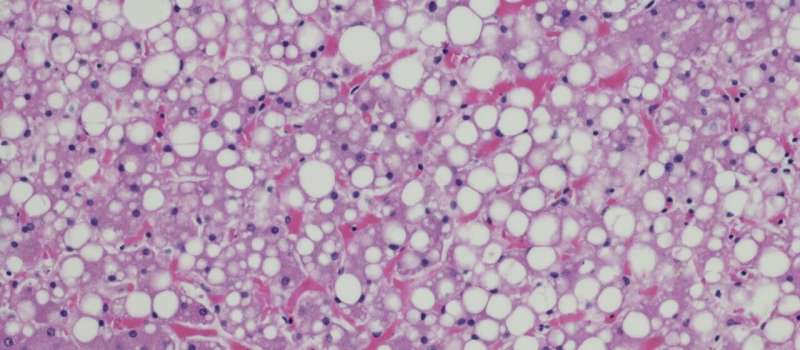A protein that guards against prostate cancer, fatty liver disease, diabetes

FIU Biomolecular Sciences Institute researchers investigating a protein they hoped would be a tumor suppressor instead discovered it was responsible for protecting people from so much more.
It turns out Inositol Polyphosphate-4-Phosphatase Type II B, or INPP4B, protects obese mice and people from developing fatty liver disease, Type 2 diabetes and prostate neoplasia.
According to the most recent Centers for Disease Control and Prevention statistics, 42.4 percent of adults in the U.S. are obese and adults 40 to 59 years old were more likely to be obese. The problem is especially dire for non-Hispanic Black adults, followed by Hispanic adults and non-Hispanic White adults.
"We can control our diet, we can go out and exercise, but there are certain factors we can't control like ethnicity, our age and our genes," said Manqi Zhang, a Duke University postdoctoral cancer researcher who led this study as a Biochemistry Ph.D. student at FIU. "So I think it's important to study this so we can find ways to manage these diseases in the future."
Back in 2017, Zhang rotated into FIU Herbert Wertheim College of Medicine Professor Irina Agoulnik's lab where research was focused on prostate cancer. Back then, there was hope that the poorly understood INPP4B would hold the key to stopping prostate cancer.
"Everything about this study surprised me," Zhang said. "When the research started, it quickly changed direction and we made a lot of progress on this."
Zhang noticed that mutant mice that did not have INPP4B were fatter on a regular diet. Agoulnik, a BSI researcher, then asked what would happen if the mice were fed high fat diet. Zhang determined that on a high-fat diet, mutant mice gained significantly more weight than normal and developed fatty livers, Type 2 diabetes and prostate cancer.
More research is needed to determine if a treatment targeting INPP4B could be helpful to people. Agoulnik is also pursuing other avenues of research involving INPP4B and breast cancer.
Zhang's study was published in the journal Nature Communications Biology where it is currently ranked first in online reader's attention.
More information: Manqi Zhang et al. INPP4B protects from metabolic syndrome and associated disorders, Communications Biology (2021). DOI: 10.1038/s42003-021-01940-6



















